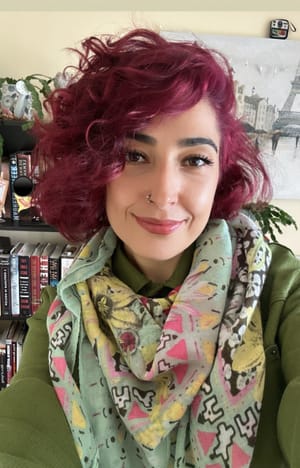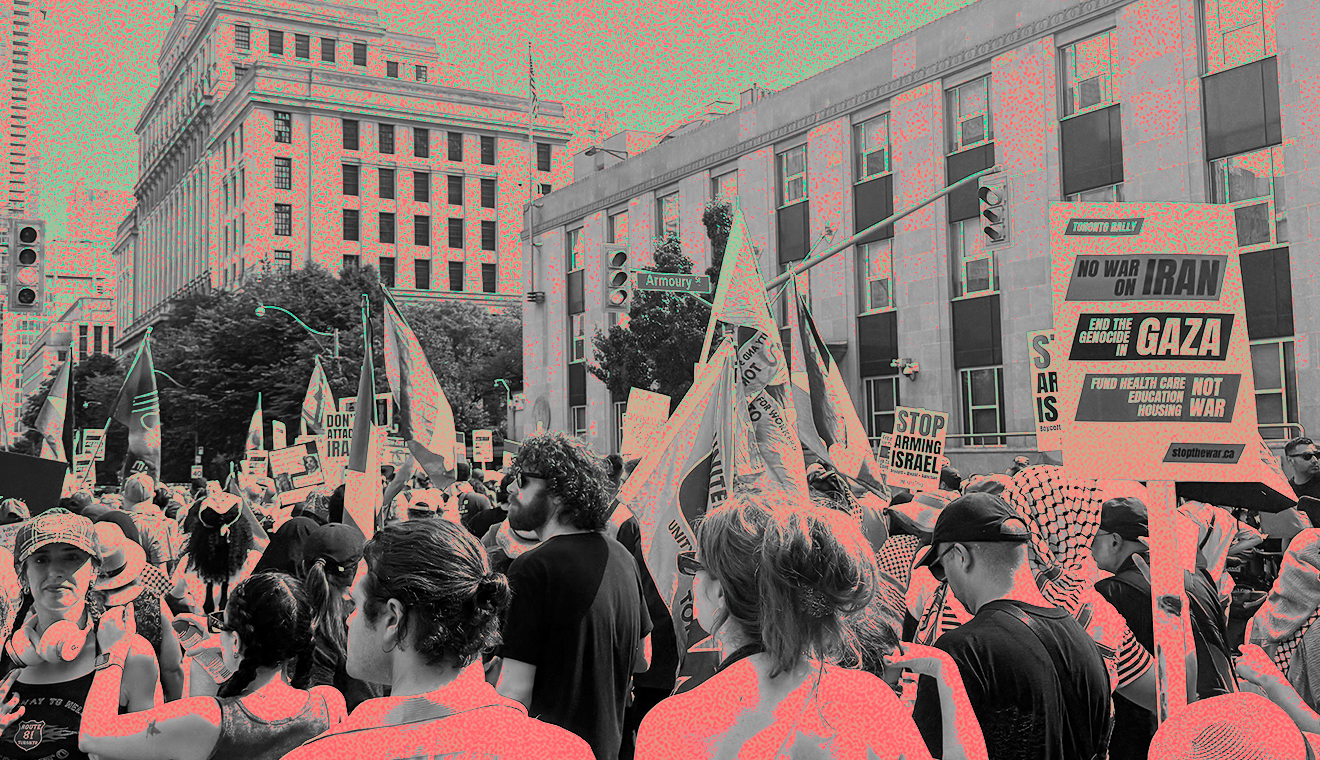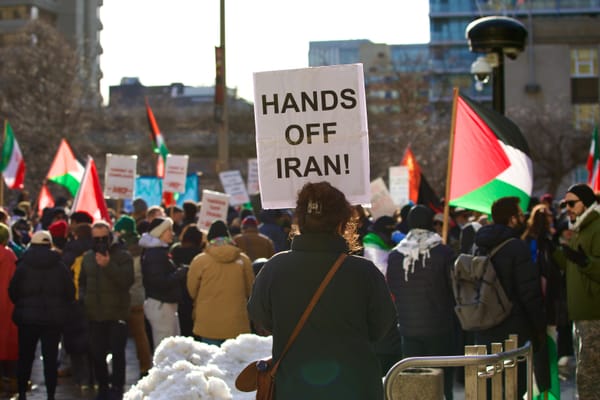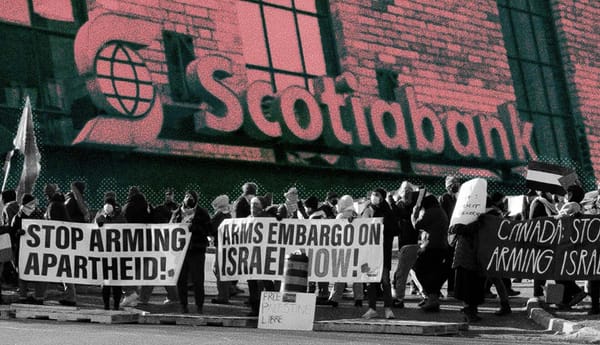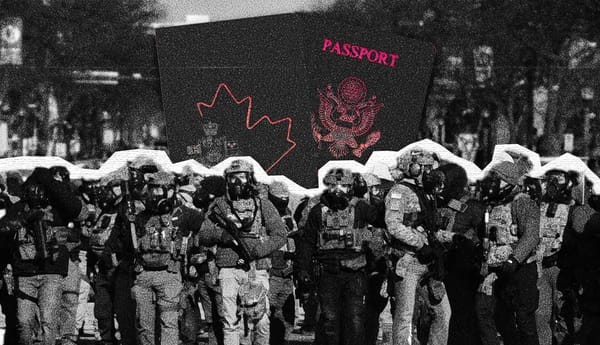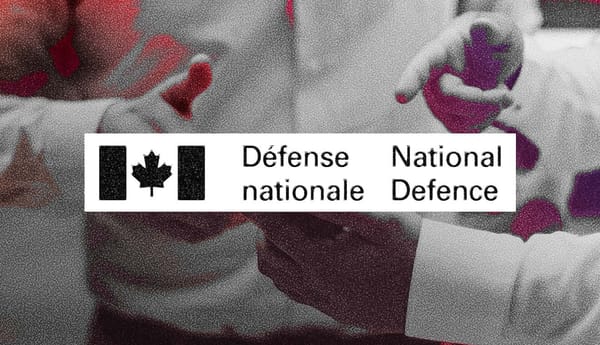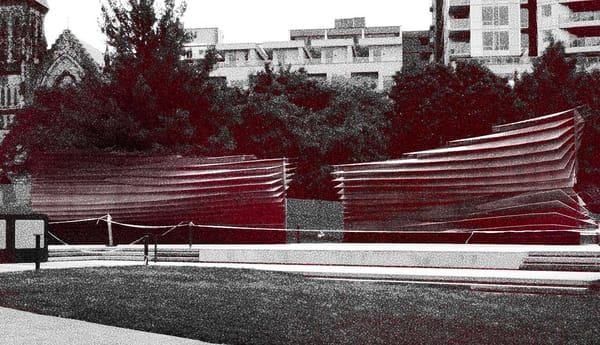Family friends killed. Relatives displaced. Childhood homes in Tehran destroyed. Fears for the safety of loved ones and concern that Iran was imminently about to fall victim to yet another American-backed war for regime change, and the chaos and carnage this would inevitably bring.
After Israel launched its unprovoked attacks on Iran on June 13, followed by American bombings on three nuclear facilities this past weekend, Iranian Canadians struggled to check on their relatives amid internet blackouts, fearing the worst was just around the corner.
Although a delicate ceasefire is in place — for now — the U.S.-Israeli bombing campaign and the Canadian government’s response to the aggression left many feeling enraged and abandoned.
The attacks killed an estimated 950 people in Iran, including 380 civilians. A further 1,564 civilians were reportedly injured. Israel’s targets included hospitals and residential buildings.
Nazanin Moghadami, an Iranian Canadian organizer who came to Canada as a student around 20 years ago, stayed with family in Iran for the festival of Nowruz earlier this year. Israel has since bombed every city she visited, including her two hometowns.
While she understands efforts to humanize Iranian experiences amid Israel’s most recent aggression, she stressed that the attacks didn’t proceed due to a lack of awareness about the suffering they caused. After all, she noted, the catastrophic human toll of Israel’s war on Gaza is widely known and recognized as a genocide, but that hasn’t stopped the attacks.
“When you’re dealing with imperialist, racist, white supremacist, colonial, Western Zionist states that are motivated by greed and profit and power and control and domination, talking about emotions is not going to do anything,” Moghadami said.
All of the Iranian Canadians interviewed by The Maple for this story before the ceasefire came into effect said they felt abandoned by the Canadian government. Prime Minister Mark Carney justified United States President Donald Trump’s decision to bomb Iranian nuclear facilities, and called for a return to negotiations over Iran’s nuclear program.
The attacks prompted hundreds of Iranian Canadians and their allies to mobilize anti-war demonstrations in Toronto.
“The question of Iran’s nuclear energy program is a bogus fearmongering tactic by the Israelis,” said an anti-war protester named Parsa, who is an organizer with the group Iranians United for Palestine.
“The aim is to destroy Iran, destroy its infrastructure, destroy its economy, destroy its population, and to remove it as any challenge to Israel’s aim of annihilating the entire Palestinian population and of exercising regional hegemony.”

Iran had been in the middle of nuclear negotiations with the U.S. when Israel, the only nuclear-armed state in the Middle East, launched its attacks. The talks were aimed at replacing an earlier nuclear agreement that Trump unilaterally withdrew from during his first term in 2018.
Trump’s own intelligence agencies had concluded that Iran was not building a nuclear weapon. Israeli Prime Minister Benjamin Netanyahu, who since 1992 has claimed Iran is on the verge of developing a bomb, said Israel’s aggression was also aimed at toppling the Iranian government.
The Iranian government has backed organizations designated as terrorist groups by Canada and its allies, and that have militarily resisted Israel’s ongoing war on Gaza, which is recognized as genocidal by human rights groups, a United Nations special committee, and leading scholars.
Parsa, who was born and raised in Tehran, said seeing Israel destroy streets he grew up on took a heavy toll. Friends and their relatives, he said, had to escape from Iran to neighbouring Azerbaijan by foot.
His grandparents, meanwhile, were forced to evacuate from their neighbourhood in Tehran. He also has family living in Isfahan, close to a nuclear facility that was bombed by the Americans.
The Canadian government, said Parsa, was “justifying their murder and supplying the weapons that are killing them, and telling them that Israel’s aggression on our country is self-defence.”
Last year, the Liberal government authorized $18.9 million of military exports to Israel, despite its pause on new export permits.
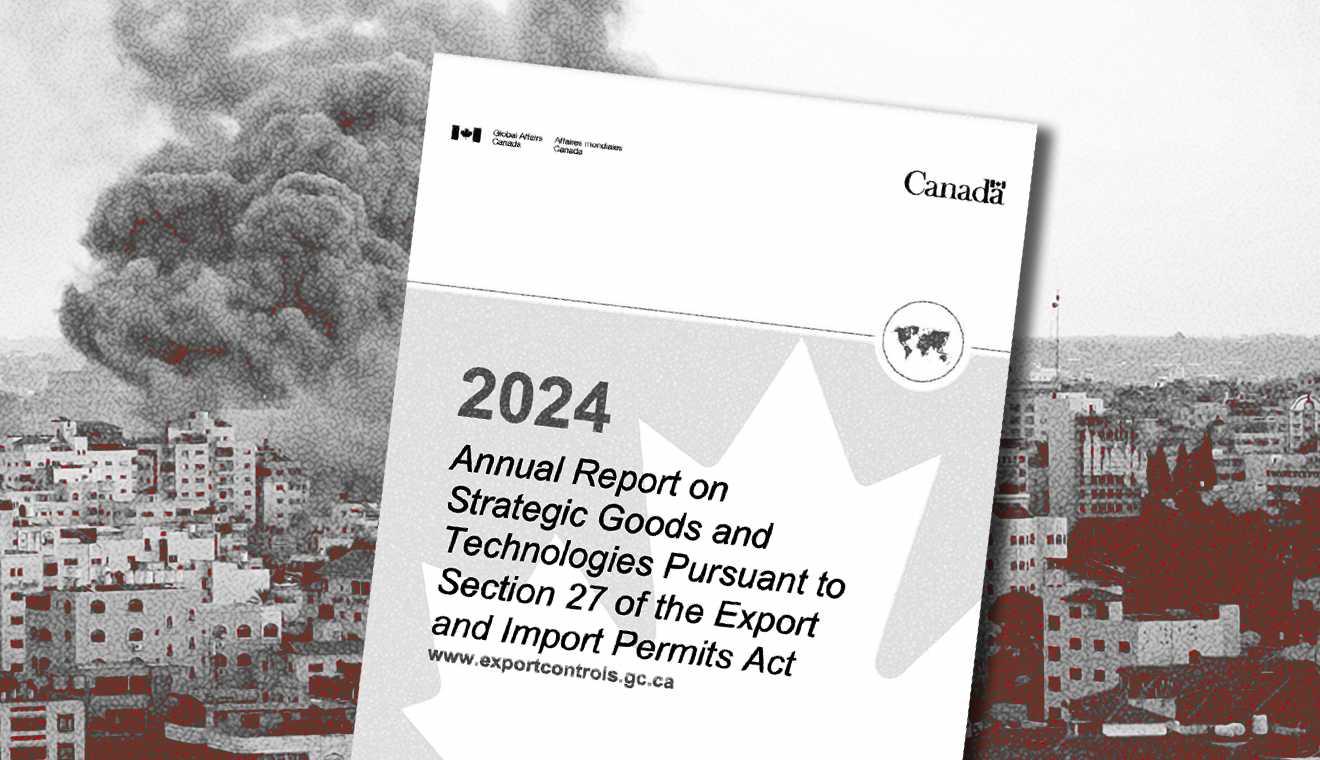
Both Carney and Foreign Affairs Minister Anita Anand, meanwhile, repeatedly characterized Israel’s attacks as acts of self-defence following Iran’s inevitable retaliatory strikes.
When asked by a reporter this week if he thought the U.S. attacks violated international law, Carney instead talked about Iran and referred to the fact that Canada designated Iran’s Islamic Revolutionary Guard Corps as a terrorist group.
Abandonment
Parsa and other Iranian Canadians interviewed by The Maple, nearly all of whom said they oppose Iran’s government, pointed out how the Canadian government offered support to Iranians during the Woman, Life, Freedom protests that began in September 2022.
Samira Mohyeddin, founder and managing editor of On The Line Media, said, “There’s such silence on behalf of all the people who were supporting us during that uprising. Everybody just seems to be okay with the killing of Iranians by the Israelis.”
Canada’s embassy in Iran closed in 2012. Global Affairs Canada’s (GAC) travel advisory for Iran currently states: “You should leave Iran if you can do so safely. Canada is unable to provide assistance within Iran, including transportation to the border.” GAC suggested exiting via land border crossings with Turkey, Armenia and Azerbaijan.
Mohyeddin pointed out that Iran is a vast country with a population of more than 90 million, and that reaching border crossings is impossible for many. She said friends and family in Iran have been forced to endure through a state of fear and precarity, wondering if they will come home alive if they go out to buy groceries.
The U.S. and Israel’s broader agenda, said Mohyeddin, is about breaking up the country, seizing Iran’s vast oil and gas reserves, and taking control of the Strait of Hormuz, a key waterway for international oil markets.
“They want to split the country up and they want to take over. It’s the Iraq playbook,” she explained, referring to the U.S.-led invasion of Iraq in 2003 that was similarly launched with the false pretext of claims about weapons of mass destruction.
Moghadami, who was involved in organizing Woman, Life, Freedom solidarity efforts in Canada, also pointed out how successive U.S. administrations and their allies similarly cited “democracy” and women’s rights as justifications for their bombing campaigns in Iraq, Afghanistan, and Libya.
“This is not about democracy. This is not about human rights. This is not about anti-terrorism, and this is definitely not about the people of Iran,” she said. Carney’s response to the attacks, she added, was shameful but not surprising, and followed a long-established playbook.
“What Carney has said is just a continuation of a Zionist influence in the Government of Canada,” and reflected a prioritization of Canadian investments in Israel, she explained.

Moghadami said Carney’s refusal to say the U.S. violated international law speaks to the true purpose behind that concept.
“International law has never been about controlling abuse and violence from the Global North. It’s always been about sanctioning and punishing the Global South.”
Mahmoud Karimi, also with Iranians United for Palestine and an organizer of an anti-war rally in Toronto this past weekend, said his mother’s cousin was “assassinated” by Israel. He said he was constantly worried about the safety of his extended family in Iran, and that he had trouble communicating with them due to regular internet blackouts.
“We all can’t focus on our work. We can’t focus on anything else. We’re constantly worried and stressed,” said Karimi. “Also by our [Canadian] government’s statements, we feel abandoned. We feel like we are forgotten about.”
“The key of this situation is Israel wants to commit genocide against people of Palestine, against people of Gaza, and they see Iran as an obstacle to this. They bring excuses like nuclear weapons.”
Karimi said Netanyahu’s claims about bringing “freedom” to the people of Iran were also lies.
“This is deception, and we don’t believe it for a second. This man is a wanted criminal. I won’t believe for a second he’s going to free my people — free my people by bombing them.”
“Only the people of Iran can decide what they want for Iran.”
Pasha Moezzi, who organized an anti-war protest in Toronto, was born and raised in Tehran, and then moved to Canada when he was 17. He strongly opposes Iran’s government, and hasn’t visited the country for eight years due to his advocacy.
Of Israel’s attacks, he said, “They’re hitting what really belongs to the people of Iran, but it’s being misused by a government that is an absolute nightmare. But at the end of the day, these are all the resources that belong to the people.”
“There hasn’t been any evidence, at least as far as I know, that you’ve bombarded a country and you’ve thrived.”
He said he was concerned to see some members of the Iranian diaspora who oppose the government celebrating Israel’s attacks.
Mohyeddin said she believes many of those cheering on the U.S.-Israeli attacks on Iran haven’t set foot in the country for decades. “They’re living their lives in Beverly Hills and screaming into the wind,” she said.
Moghadami similarly described an “enemy of my enemy” mentality among some members of the diaspora who oppose the Iranian government.
This, she explained, is partly fuelled by Western-funded Farsi-language media outlets, and was on display when Netanyahu made a statement endorsing the Woman, Life, Freedom movement. Some Iranians, she said, applauded that statement.
“They cannot get the nuance that I can be Iranian [...] I can really, very much not want my government to be in place, and I very much do not want to be ‘saved’ by a foreign force.”
Kaveh Ehsani, an Iranian Canadian who attended the most recent anti-war protest in Toronto, said he believes those who supported Israel’s aggression and those who support the current Iranian government both constitute a minority in the diaspora.
“The majority of Iranians do not support the Iranian regime which has been oppressing them for decades, and they don’t support the Western imperialist powers which have also been oppressing them for centuries,” he said.
Decades Of Interference
In 1953, British and American intelligence agencies orchestrated a coup against the democratically elected government of Mohammad Mosaddegh, who had attempted to nationalize Iran’s oil industry and expel foreign oil executives.
The country was subsequently run under a brutal and Western-backed dictatorship headed by Reza Shah Pahlavi, until he was ousted in the 1979 revolution that brought the current Islamic republican government to power.
After that, the U.S. provided Iraqi President Saddam Hussein with extensive support during the Iraq-Iran war that spanned from 1980 to 1988, and devastated Iran’s economy, society and infrastructure.
The most recent aggression against Iran, Ehsani said, continued that history.
“You have seen imperialist powers try to act as liberators and bring regime change for their own interests, for their own profit,” he said. “Down with the Western imperialists, down with the Iranian regime, up with liberation and with the people of Iran.”


